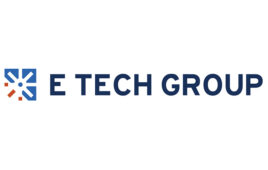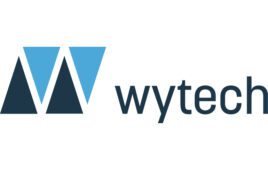 Kevin Conroy knew he was taking a risk when he became CEO of Exact Sciences: The company had twice failed to develop screening tests for colorectal cancer, and it was light on cash.
Kevin Conroy knew he was taking a risk when he became CEO of Exact Sciences: The company had twice failed to develop screening tests for colorectal cancer, and it was light on cash.
But as he explained in a recent LinkedIn blog post, he had three friends diagnosed with colorectal cancer around the same time: “While the company didn’t look like much on the surface, the feeling something was there wouldn’t leave me.”
Ten years later, Exact Sciences’ Cologuard non-invasive screening test has provided screening for more than 2 million people in the U.S. The company saw $454 million in revenue in 2018 and expects to bring in up to $740 million this year — with nearly 2,000 workers and construction of a second laboratory underway in its home city of Madison, Wis. (The company is even scouting for a third lab site.)
Exact Sciences (Nasdaq: EXAS) hasn’t been turning profits. But investors expect that to change: The company’s stock is trading around $100 per share, about four times its early 2015 selling price.
During a lunchtime keynote yesterday at the Medtech Conference in downtown Minneapolis, Conroy shared some of the lessons that helped him along the way:
1.Focus on a few top priorities
Conroy explained in his blog post: “At Exact Sciences we have a mantra: if you have more than three priorities, you really have none.”
In the early days, Conroy had a Post-It note on his computer with the priorities. These days, the executive team comes up with three top priorities annually, with the priorities displayed on posters across the company.
2. Engage the payers early
Soon after Conroy joined Exact Sciences, he had to confront a stark situation when meeting with officials at the Centers for Medicare & Medicaid Services to discuss Medicare coverage. Medicare officials said they’d meet with them after FDA approval — probably five years down the road — to help them design a study. Three years later, if the study was successful, Medicare would consider a national coverage decision. “I realized at that point that we were in a lot of trouble because there was no path forward for the company for eight years.”
Rather than throw in the towel, Conroy asked if they would consider a parallel review process with FDA, and the Medicare officials responded that they’d been thinking about something like that for a long time. Exact Sciences ended up in a pilot program in which it secured FDA approval and Medicare coverage for Cologuard at the same time in 2014.
“I would say just go and sit down with CMS because in this case they were really the innovator. They came up with the solution when we said, ‘This may be the last meeting we have as a company unless we can solve the problem,’” Conroy said at the Medtech Conference.
3. Raise as much money as you can
Raising cash was a major challenge for Conroy during his previous job as CEO of Third Wave Technologies, which Hologic bought for roughly $580 million in 2008. So whenever he has a chance to raise money, he raises it: $2.3 billion for Exact Sciences since 2009.
“The CEO’s job is to make sure it’s well financed. After every one of these deals, I had investors say, ‘Why in the word do you need more capital for?’ Or, ‘I thought this was your last raise, the last one you did.’ And it’s gut-wrenching because no one likes to have those conversations, but that’s your job,” Conroy said.
4. Think outside the box
Soon after the launch of Cologuard, Exact Sciences went old-school and took the pharma route when it came to raising awareness about the test. The company in the first year spent $28 million running television ads on 12 channels. “What we saw was an immediate spike in the number of physicians who were ordering Cologuard for the first time per week. It jumped from 400 physicians per week to 800 physicians per week in one quarter,” Conroy said.
5. Be honest with your partners
From the start, collaboration with the Mayo Clinic in Rochester, Minn., played an integral role in Exact Sciences’ success. More recently — in August 2018 — Exact Sciences inked a promotion agreement with Pfizer in which Pfizer receives a service fee based on incremental gross profits and royalties based on Cologuard-related revenues.
“I think the most important thing with partners is you’ve got to be honest about what your goals are and how you’re going to get there. Leave enough on the table so that the partner does well,” Conroy said.
6. Take risks
The joint FDA and CMS review process required Exact Sciences to conduct a 10,000-patient study to satisfy evidence requirements. The company hustled to meet its recruitment goals within 18 months. It was risky for such a young company to conduct such a larger study, but the effort paid off.
7. Never forget why
Conroy in his blog post said he keeps a note of encouragement from an old friend Jamie Truesdell pinned to his office bulletin board. Colon cancer killed Truesdall, and Conroy wants the reminder every day that what Exact Sciences is doing could make a difference.




